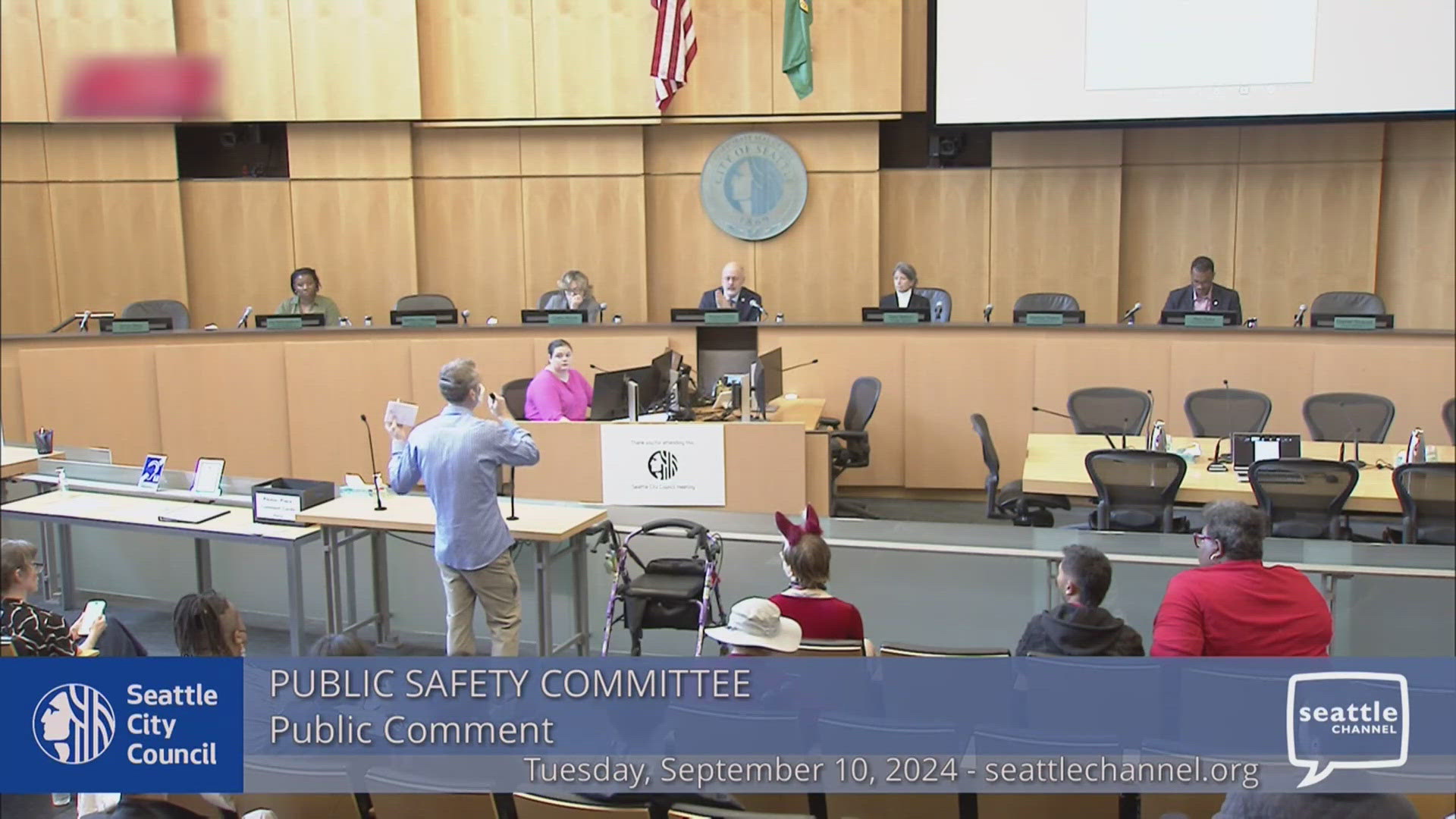SEATTLE — Controversial proposals to ban those with drug and prostitution-related arrests from certain areas of Seattle passed out of the Public Safety Committee after a tense meeting on Tuesday.
The Seattle City Council reported a "loud disruption" in the meeting when the committee attempted to move on from public comment, causing an extended recess. After a series of disruptions from audience members, several people were asked to leave. Officials later discovered some vandalism on city hall property by those who were kicked out of the meeting.
The proposals, called SOAP and SODA zones, would create certain areas of the city where people with drug and prostitution-related arrests are not allowed to go, like the International District, Downtown and Aurora neighborhoods.
The Stay Out of Area of Prostitution proposal would put a prostitution loitering law back on the city's books after it was unanimously struck by the Seattle City Council in 2020, citing harm to sex workers who were already at high risk of trafficking, abuse and exploitation, and data that similar laws in other cities disproportionately impact people of color.
The new ordinance would make selling or buying a sex act a misdemeanor within the city of Seattle and would make "promoting loitering for the purposes of prostitution" a gross misdemeanor. That charge would apply to anyone who repeatedly transports another person to a known area of prostitution and/or repeatedly monitors or surveils a person or persons engaged in prostitution loitering.
The ordinance would also create SOAP zones. These zones encompass areas of Seattle with high levels of illegal prostitution or other related criminal activity. A municipal court judge would have the power to bar anyone charged with or convicted of any prostitution-related crimes from entering those areas of the city.
An amendment to the ordinance, proposed by bill-sponsor Councilmember Cathy Moore, would limit SOAP orders to buyers and promoters of sex trafficking, require police to train with sex-trafficking survivor groups and create arrest policies that prioritize diversion and referral to services over conviction and jail time.
A similar ordinance put forward by Seattle City Attorney Ann Davison would create Stay Out of Drug Area (SODA) zones, where people who have been charged with drug-related crimes would not be allowed to go. Davison said the legislation aims at combat open-air drug markets and covers limited areas of the city, including parts of Downtown Seattle and the International District. Proposed amendments seek to add additional SODA zones to the ordinance, including Capitol Hill, Pioneer Square, the University District and another part of the Belltown neighborhood.
Opponents of both ordinances worry that they would unfairly target and increase police interactions with people of color, advocating instead for more resources and outreach to help those struggling with addiction or trapped in sex trafficking. The ACLU of Washington previously sent a letter to the Seattle City Council warning that the ordinance would "not only cruelly target our most vulnerable populations and expand police powers to harass our neighbors," but also that the proposals would criminalize poverty and substance use disorder.
The ACLU went on to write that the proposals raise "serious constitutional concerns," saying that empowering law enforcement to stop, search and arrest people based on their perceived status as people in the sex trade or as drug users allows police to profile, harass and make arrests based on "appearance rather than criminal activity." The organization said further that pre-trial imposition of a ban from a SOAP or Stay out of Drug Area (SODA) zone would raise concerns about violating the constitutional right to travel and associate.

